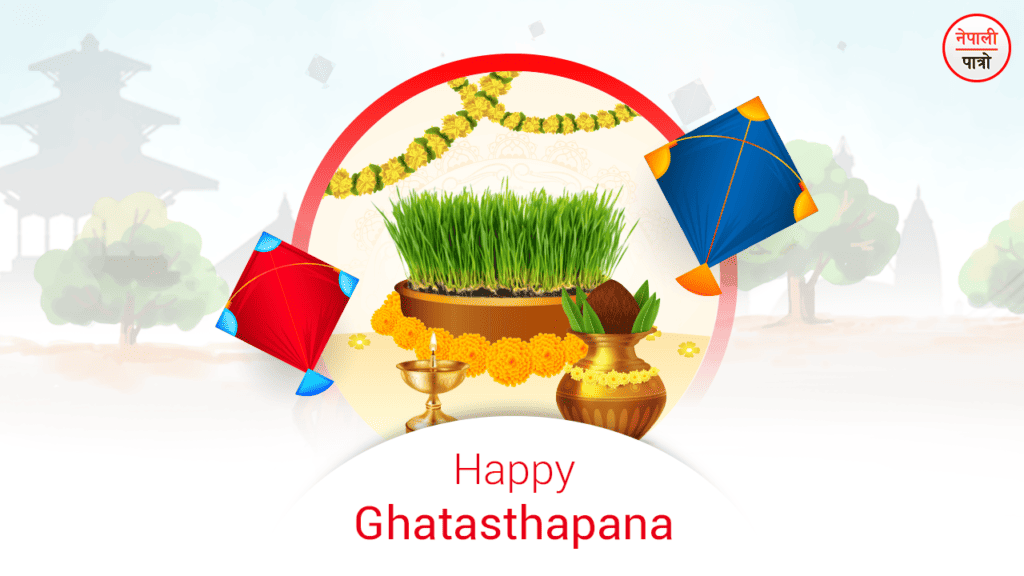
Ghatasthapana
Nepal is a multi-ethnic, multi-religious, and multicultural country. Each ethnic community has its own traditions and festivals. However, Bada Dashain is a festival that is celebrated by almost all Nepalese excluding some of the ethnicities and communities. As it is a great festival for the majority of Nepalese, it is called ‘Bada Dashain’. This festival is equally important in terms of religion, spirituality, as well as for families, social life, cultural aspects, and at the national level. For instance, if one just says Dashain, a very warm kind of joy and excitement is created in everyone’s mind. With the opportunity to consume tasty foods, sweets, and dress well, this festival brings excitement, enthusiasm, and liveliness in every household, generation, and mind. For those who are seekers and devotees, this is the time to gain desired achievement, as power etc by worshiping Bhagwati. In the same way this is the festival of villages, towns and society in general when they endeavour to take up social works such as cleaning and sanitation, developmental projects, meeting, fairs, etc along with celebration and entertainment. Every year celebrated during the Suklapakchya of the month of Ashwin is the festival of Dashain. After Dashains arrival the houses are cleaned, and special decorations also are done. On the Pratipada date of Ashwin Shukla Pakchya, by invoking Nava Durga, Ghatasthapana, are established and Dashain is brought from house to house. After worshiping Navdurga Bhavani for nine days, on the day of Dashmi, Bhagwati is concluded and blessings are received from the elders as Tika and Jamara. And on the full moon day of Kojagrat, after worshiping Mahalakshmi and staying awake all night, Dashain festival is formally bid farewell.
From Ghatasthapana, Dashain enters the homes of Nepalese. The festival of joy, enthusiasm and unity brings everyone to their house. Dashain makes everyone from small children to the elderly people happy. Children who have gone to the city to study, sons who have gone abroad to earn money, etc all those who have gone abroad return home in a hurry for its celebration. Job holders are also in a hurry to go home as soon as their office time is over. Those who are at home are busy doing everything necessary for Dashain preparation such as shopping for necessary things etc. From the day of Ghatasthapana, the house leaders and elders are busy in offering and worship. Young people are busy decorating their homes and building roads.
Every household is cleaned and specially decorated on the occasion of Dashain. Village roads are repaired. Bridges are built and repaired. Various plans and collective efforts are made for the development of the village. Big bamboo swings and rotating swings similar to Merry go- round are constructed in different places. Competitions in various sports also heat up the villages and towns with excitement in the participation etc. For a long time, it has been a customary tradition to collect food items and chickens etc for meat on the occasion of Bada Dashain. It is also considered as a time to meet the various needs of the family members. Normally, people also take this festival as an opportunity to buy and add new clothes for everyone, Jewelry for wife, toys for the children, kitchen accessories and various other necessities of the house. On the occasion of Dashain, now with the evolving time, there is a growing trend of collecting new utensils, quilts and beddings, along with electrical appliances such as small and big vehicles etc. The marketplaces can be seen with different kinds of “Offers” by the sellers for its consumers as the market is flocked by the consumers for the purchase of necessary goods.
Festival of Family Gatherings and Unity
In Dashain, the village is more enjoyable than the cities. Due to the long public holiday, the temporary residents of the city return to the village at Dashain. Village invites everyone and welcomes each and everyone. This is the reason that during Dashain, the city seems to be a little lonely. As Dashami approaches, the city also becomes empty. Even just for a few days, the towns-people breathe a sigh of relief from the hustle bustle and noises.
At Dashain, the sons who have gone abroad for work return with sufficient luggage. No matter how much they earn, they bring home and share as much happiness as possible. Those who are at home wait for them to arrive. They store good food for their home returners. How happy the old parents must be when their son returns home. How happy the children are to find their father they have only heard about till yesterday. How happy a wife is to be reunited with her estranged husband. And, how happy it is for a home-returner to find himself in his own home with his entire family. And, how much fun it is to meet friends after a long interval of time. On Dashain, married off daughters, close relatives and friends also gather. Therefore, it is also a festival of gatherings. Whether it is the married daughters who have not been able to go to their parental home (Maita) for a long time or the nieces and nephews who have been counting their fingers in the hope of going to their maternal home (Mama ghar), Dashain fulfills all of their wishes. Dashain gives the opportunity to meet all the relatives and to introduce the little ones to the relatives.
Festival at every household, festival at every human heart. The pride and original identity of Nepalese. Where there are Nepalese, there is Bada Dashain. That is why Nepalese living abroad also welcome Dashain even if they are abroad. As much as possible, friends and relatives gather to celebrate the Dashain festival together. And, even the foreigners taste the Dashain. Dashain is successful in uniting all Nepalese everywhere in the garland of cultural unity.
Festival of Blessings and Respect
Another aspect of Bada Dashain is the culture of blessings. Manyajan (elders) and Kulbriddha (eldest of the family) give Tika and Jamara to the younger ones as offerings of Bhagwati and also blesses what they know. The person giving the blessing must be powerful. And to get power, one has to worship Bhagwati as she is the form of Shakti (power). On the tenth day, goddess Mahakali, Mahalaxmi and Mahasaraswati are worshiped as Durga Bhavani. There is a tradition of performing Durga Saptashati recitations, chanting, rituals and even dancing with Bhagwati’s praises during Nauratha (nine days of Dashain festival) by honoring Bhagwati in different Shakti Peethas (temple of goddess Durga Bhavani and her different forms) and at home also. The person performing the ritual should be pure and be holy and fast. And, by worshiping and adoring Bhagwati, a person becomes powerful, obtaining “Shakti ” from the holy practish. After receiving power from Bhagwati, there will be no harm throughout the year round and the person and his family will be happy. This same religious belief is also supported by the culture of blessings.
Blessing is also the distribution of power gained through Bhagwati rituals. Blessings given on the tenth day include mantras, verses, maxim and even sentences of moral ideals from Vedas and Puranas, Tantric as well as worldly. The Vedic mantra used in blessings also upholds the ideals of universal and everlasting peace, public welfare and society. In mythological, tantric or worldly blessings, a person is blessed with various ideal personnels qualities and wishes for happiness and longevity. Even in public life, it is customary to exchange good wishes on the occasion of Bada Dashain. Dashain has also enlivened the homage paid to the elder people. After receiving the tika and blessings given by the elders, on its tenth day, one should bow their heads in reverence and bow down to them. This makes even the elders most happy. And, the feeling of intimacy grows in everyone. In fact, this is the basic Nepali culture. Bada Dashain has revived this culture by passing it on from the old generation to the upcoming new generation.
Method of Ghatasthapana
Ghatasthapana should be done in a clean place that has been cleaned and purified. The worshiper should perform pious daily deeds, wear clean, pure, red cloth, worship the Goddess throughout Navaratri, recite Chandipath or Devi Bhagwat, etc., and eat sattvic food only at night. At the beginning of Ghatasthapana, Deep-Kalash-Ganesh should be worshiped and barley, wheat etc. should be planted in the sand mixed with soil and a pot of Durga Bhawani should be installed in the middle of it. On a clean plate, one should write Deviyantra or Ashtadal with rakta chandan or sandalwood and this (Durga Yantra) plate should be placed over the pot and image of goddess made of gold, silver or any other metal idol should be placed on it and worshiped. There is a tradition of establishing Bhagwati in the pot by invoking family, arms and strength while performing Durga Puja. This whole method is called Ghatsthapana.
After Ghatsthapana, Durga Bhawani is regularly worshiped, and Chandi mantras are chanted and recited. As this is a special occasion to worship Shakti, the ritual of Shrimaddevi Bhagwat recital also can also be started. Among the nine virgins, the first virgin is worshipped, and special worship with darshan of Shailaputri Bhagwati etc. are performed. On the same day, Durga Bhawani is also worshiped by setting up idols of the goddess at the Social and National levels.
पूजनीया जनैर्देवी स्थाने स्थाने पुरे पुरे।
गृहे गृहे शक्तिपरैर्ग्रामे ग्रामे वने वने।।
स्नातैः प्रमुदितैर्हृष्टैर्ब्राह्मणैः क्षत्रियैः नृपैः।
वैश्यैः शूद्रैर्भक्तियुक्तैर्म्लेच्छैरन्त्यैश्च मानवैः।।
On Navratri, all human beings can and should worship the Goddess. Since Navratri worship is regular, if you don’t do it, you will be blamed. Regular worship should be done like daily deeds. If a date has been lost, the worship of that date should be completed by repeating its worship on another day.
Meditate upon
ॐ विद्युद्दामसमप्रभां मृगपतिस्कन्धस्थितां भीषणां ।
कन्याभिः करबालखेटविलसद्धस्ताभिरासेविताम् ॥
हस्तैश्चक्रगदासिखेटविशिखांश्चापं गुणं तर्जनीं ।
बिभ्राणामनलात्मिकां शशिधरां दुर्गां त्रिनेत्रां भजे ॥
ॐ जटाजूटसमायुक्तामर्द्धेन्दुकृतशेखराम् ।
लोचनत्रयसंयुक्तां पूर्णेन्दुसदृशाननाम् ॥
अतसीपुष्पसङ्काशां सुप्रतिष्ठां सुलोचनाम् ।
नवयौवनसम्पन्नां सर्वाभरणभूषिताम् ॥
सुचारुदशनां तद्वत्पीनोन्नतपयोधराम् ।
त्रिभङ्गस्थानसंस्थानां महिषासुरमर्दिनीम् ॥
प्रसन्नवदनां देवीं सर्वकामफलप्रदाम् ।
शत्रुक्षयकरीं देवीं दैत्यदानवदर्पहाम् ॥
उग्रचण्डा प्रचण्डा च चण्डोग्रा चण्डनायिका ।
चण्डा चण्डवती चैव चण्डरूपातिचण्डिका ॥
आभिः शक्तिभिरष्टाभिः सततं परिवेष्टिताम् ।
चिन्तयेज्जगतां धात्रीं धर्मकामार्थमोक्षदाम् ॥
ध्यानं समर्पयामि, सपरिवारयुतायै साङ्गायै दुर्गादेव्यै नमः।
Invoke the Goddess
ॐ एहि दुर्गे महाभागे रक्षार्थं मम सर्वगे ।
आवाहयाम्यहं देवि सर्वकामार्थसिद्धये ॥
रक्षां कुरु सदा भद्रे दुर्गे देवि नमोSस्तु ते ।
सर्वविघ्नहरे देवि सर्वपापप्रणाशिनि ॥
यज्ञं रक्ष महादेवि पुत्रपौत्रप्रवर्धिनि ।
असुराणां क्षयकरि सर्वशत्रुविनाशिनि ॥
त्वं लक्ष्मीस्त्वं च ब्रह्माणी त्वं गौरी त्वं च पार्वती ।
दुर्गा भगवती त्वं च चण्डी नारायणीति च ॥
कौमारी वैष्णवी चैव शारदा त्वं सरस्वती ।
आगच्छ वरदे देवि दैत्यदर्पनिषूदिनी ॥
पूजां गृहाण सुमुखि नमस्ते शंकरप्रिये ।
सर्वतीर्थमयं वारि सर्वदेवसमन्वितम् ॥
इमं घटं समागच्छ तिष्ठ देवगणैः सह ॥
ॐ जयन्ती मंगला काली भद्रकाली कपालिनी ।
दुर्गा क्षमा शिवा धात्री स्वाहा स्वधा नमोSस्तु ते ॥
आवाहनं समर्पयामि, सपरिवारयुतायै साङ्गायै दुर्गादेव्यै नमः।
Worship of the deities located on four cardinal direction of Durga. Worship the throne in the middle and then from Ishan start the worship respectively:-
ॐ विष्णवे नमः। ॐ शिवाय नमः। ॐ विनायकाय नमः। ॐ सूर्याय नमः। दुर्गादेव्याः सर्वेभ्यो परिवारेभ्यो नमः।
16 acts of homage/ Puja
(Baidik Mantra, Tantrik Mantra, or mixture of both, or only through name mantra also the puja and worship of Goddess can be done. Thus, here the name mantras are mentioned which can be used for the purpose:)
१. आसनं समर्पयामि, दुर्गादेव्यै नमः। (offer kuz and flowers seating for the goddess)
२. पाद्यं समर्पयामि, दुर्गादेव्यै नमः।
३. अर्घ्यं समर्पयामि, दुर्गादेव्यै नमः।
४. आचमनीयं समर्पयामि, दुर्गादेव्यै नमः।
५. स्नानीयं समर्पयामि, दुर्गादेव्यै नमः।
६. पञ्चामृतस्नानं समर्पयामि, दुर्गादेव्यै नमः।
७. शुद्धोदकस्नानं समर्पयामि, दुर्गादेव्यै नमः।
८. वस्त्रं, यज्ञोपवीतं उपवस्त्रं च समर्पयामि, दुर्गादेव्यै नमः।
९. श्रीखण्डादि चन्दनं समर्पयामि, दुर्गादेव्यै नमः।
१० अक्षतान् समर्पयामि, दुर्गादेव्यै नमः।
११ पुष्पं, पुष्पमालां, सौभाग्यद्रव्याणि समर्पयामि, दुर्गादेव्यै नमः।
(to worship vermillion, eyeliners (gajal), tika, Mangalsutra etc and perform puja of the dress also. )
Puja of different Body Parts:
(Take red rice, flowers, sandalwood, bel leaves etc and visualising the different body parts perform their puja)
ॐ महाकाल्यै नमः, पादौ पूजयामि ।
ॐ मङ्गलायै नमः, गुल्फौ पूजयामि ।
ॐ कात्यायन्यै नमः, जानुनी पूजयामि ।
ॐ भद्रकाल्यै नमः, उरू पूजयामि ।
ॐ कमलायै नमः, कटिं पूजयामि ।
ॐ शिवायै नमः, नाभिं पूजयामि ।
ॐ क्षमायै नमः, उदरं पूजयामि ।
ॐ स्कन्दायै नमः, हृदयं पूजयामि ।
ॐ नानास्त्रधारिण्यै नमः, बाहून् पूजयामि ।
ॐ महिषासुरमर्दिन्यै नमः, कण्ठं पूजयामि ।
ॐ जगन्मायायै नमः, मुखं पूजयामि ।
ॐ जगन्मय्यै नमः, दन्तान् पूजयामि ।
ॐ जगद्धात्र्यै नमः, नासिकां पूजयामि ।
ॐ उमायै नमः, नेत्रे पूजयामि ।
ॐ सुरवन्दितायै नमः, कर्णौ पूजयामि ।
ॐ बिन्ध्यवासिन्यै नमः, ललाटं पूजयामि ।
ॐ सर्वेश्वर्यै नमः, शिरः पूजयामि ।
ॐ दुर्गायै नमः, सर्वाङ्गं पूजयामि ।
१२ धूपं आघ्रापयामि, दीपं च दर्शयामि, दुर्गादेव्यै नमः।
१३ नानाविधानि नैवेद्यानि, फलानि च समर्पयामि, दुर्गादेव्यै नमः। आचमनीयं च समर्पयामि, दुर्गादेव्यै नमः।
१४ ताम्बूलं समर्पयामि, दुर्गादेव्यै नमः। सुगन्धिद्रव्यं च समर्पयामि, दुर्गादेव्यै नमः।
१५ न्यूनतातिरिक्तये द्रव्यदक्षिणां समर्पयामि, दुर्गादेव्यै नमः।
१६ आरार्तिक्यं, पुष्पाञ्जलीं, प्रदाक्षिणां, क्षमापनं च समर्पयामि, दुर्गादेव्यै नमः।
अनेन यथा उपलब्धवस्तुद्वारा पूजनेन दुर्गादेवी प्रियताम् न मम।
Apology Prayer
अपराध सहस्राणि क्रियन्तेऽहर्निशं मया ।
दासोऽयमिति मां मत्वा क्षमस्व परमेश्वरि ॥१॥
आवाहनं न जानामि न जानामि विसर्जनम्
पूजां चैव न जानामि क्षमस्व परमेश्वरि ॥२॥
मन्त्रहीनं क्रियाहीनं भक्तिहीनं सुरेश्वरि ।
यत्पूजितं मया देवि परिपूर्णं तदस्तु मे ॥३॥
अपराधशतं कृत्वा जगदम्बेति चोच्चरेत् ।
यां गतिं समवाप्नोति न तां ब्रह्मादयः सुराः ॥४॥
सापरधोऽस्मि शरणं प्राप्तस्त्वां जगदम्बिके ।
इदानीमनुकम्प्योऽहं यदेच्छसि तदा कुरु ॥५॥
अज्ञानाद्विस्मृतेर्भ्रान्त्या यन्यूनमधिकं कृतम्।
तत्सर्वं क्षम्यतां देवि प्रसीद परमेश्वरि ॥६॥
कामेश्वरि जगन्मातः सच्चिदानन्दविग्रहे ।
गृहाणार्चामिमां प्रीत्या प्रसीद परमेश्वरि ॥७॥
गुह्यातिगुह्यगोप्त्री त्वं गृहाणामस्कृतं जपम् ।
सिद्धिर्भवतु मे देवि त्वत् प्रसादात् सुरेश्वरि ॥८॥
—————————–
अथ देव्याः कवचम्
ॐ अस्य श्री चण्डी कवचस्य ब्रह्मा ऋषिः । अनुष्टुप् छन्दः । चामुण्डा देवता अङ्गन्यासोक्तमातरो बीजम् । दिग्बन्धदेवतास्तत्त्वम् । श्रीजगदम्बाप्रीत्यर्थे सप्तशती पाठाङ्गत्वेन जपे विनियोगः ॥
ॐ नमश्चण्डिकायै
मार्कण्डेय उवाच
ॐ यद् गुह्यं परमं लोके सर्वरक्षाकरं नृणाम् ।
यन्न कस्यचिदाख्यातं तन्मे ब्रूहि पितामह ! ॥ १॥
ब्रह्मोवाच
अस्ति गुह्यतमं विप्र सर्वभूतोपकारकम् ।
देव्यास्तु कवचं पुण्यं तच्छृणुष्व महामुने ॥ २॥
प्रथमं शैलपुत्री च द्वितीयं ब्रह्मचारिणी ।
तृतीयं चन्द्रघण्टेति कूष्माण्डेति चतुर्थकम् ॥ ३॥
पञ्चमं स्कन्दमातेति षष्ठं कात्यायनीति च ।
सप्तमं कालरात्रीति महागौरीति चाष्टमम् ॥ ४॥
नवमं सिद्धिदात्री च नवदुर्गाः प्रकीर्तिताः ।
उक्तान्येतानि नामानि ब्रह्मणैव महात्मना ॥ ५॥
अग्निना दह्यमानस्तु शत्रुमध्ये गतो रणे ।
विषमे दुर्गमे चैव भयार्ताः शरणं गताः ॥ ६॥
न तेषां जायते किञ्चिदशुभं रणसंकटे ।
नापदं तस्य पश्यामि शोकदुःखभयं न हि ॥ ७॥
यैस्तु भक्त्या स्मृता नूनं तेषां वृद्धिः प्रजायते ।
ये त्वां स्मरन्ति देवेशि ! रक्षसे तान्न संशयः ॥ ८॥
प्रेतसंस्था तु चामुण्डा वाराही महिषासना ।
ऐन्द्री गजसमारूढा वैष्णवी गरुडासना ॥ ९॥
माहेश्वरी वृषारूढा कौमारी शिखिवाहना ।
लक्ष्मीः पद्मासना देवी पद्महस्ता हरिप्रिया ॥ १०॥
श्वेतरूपधरा देवी ईश्वरी वृषवाहना ।
ब्राह्मी हंससमारूढा सर्वाभरणभूषिता ॥ ११॥
इत्येता मातरः सर्वाः सर्वयोगसमन्विताः ।
नानाभरणशोभाढ्या नानारत्नोपशोभिताः ॥ १२॥
दृश्यन्ते रथमारूढा देव्यः क्रोधसमाकुलाः ।
शङ्खं चक्रं गदां शक्तिं हलं च मुसलायुधम् ॥ १३॥
खेटकं तोमरं चैव परशुं पाशमेव च ।
कुन्तायुधं त्रिशूलं च शार्ङ्गमाधमुत्तमम् ॥ १४॥
दैत्यानां देहनाशाय भक्तानामभयाय च ।
धारयन्त्यायुधानीत्थं देवानां च हिताय वै ॥ १५॥
नमस्तेऽस्तु महारौद्रे महाघोरपराक्रमे ।
महाबले महोत्साहे महाभयविनाशिनि ॥ १६॥
त्राहि मां देवि ! दुष्प्रेक्ष्ये शत्रूणां भयवर्द्धिनि ।
प्राच्यां रक्षतु मामैन्द्री आग्नेय्यामग्निदेवता ॥ १७॥
दक्षिणेऽवतु वाराही नैर्ऋत्यां खड्गधारिणी ।
प्रतीच्यां वारुणी रक्षेद् वायव्यां मृगवाहिनी ॥ १८॥
उदीच्यां पातु कौमारी ऐशान्यां शूलधारिणी ।
ऊर्ध्वं ब्रह्माणि मे रक्षेदधस्ताद् वैष्णवी तथा ॥ १९॥
एवं दश दिशो रक्षेच्चामुण्डा शववाहना ।
जया मे चाऽग्रतः पातु विजया पातु पृष्ठतः ॥ २०॥
अजिता वामपार्श्वे तु दक्षिणे चाऽपराजिता ।
शिखामुद्योतिनी रक्षेदुमा मूर्ध्नि व्यवस्थिता ॥ २१॥
मालाधरी ललाटे च भ्रुवौ रक्षेद् यशस्विनी ।
त्रिनेत्रा च भ्रुवोर्मध्ये यमघण्टा च नासिके ॥ २२॥
शङ्खिनी चक्षुषोर्मध्ये श्रोत्रयोर्द्वारवासिनी ।
कपोलौ कालिका रक्षेत्कर्णमूले तु शाङ्करी ॥ २३॥
नासिकायां सुगन्धा च उत्तरोष्ठे च चर्चिका ।
अधरे चामृतकला जिह्वायां च सरस्वती ॥ २४॥
दन्तान् रक्षतु कौमारी कण्ठदेशे तु चण्डिका ।
घण्टिकां चित्रघण्टा च महामाया च तालुके ॥ २५॥
कामाक्षी चिबुकं रक्षेद् वाचं मे सर्वमङ्गला ।
ग्रीवायां भद्रकाली च पृष्ठवंशे धनुर्धरी ॥२६॥
नीलग्रीवा बहिःकण्ठे नलिकां नलकूबरी ।
स्कन्धयोः खड्गिनी रक्षेद् बाहू मे वज्रधारिणी ॥ २७॥
हस्तयोर्दण्डिनी रक्षेदम्बिका चाङ्’गुलीषु च ।
नखाञ्छूलेश्वरी रक्षेत् कुक्षौ रक्षेत् कुलेश्वरी ॥ २८॥
स्तनौरक्षेन्महादेवी मनः शोकविनाशिनी ।
हृदये ललिता देवी उदरे शूलधारिणी ॥ २९॥
नाभौ च कामिनी रक्षेद् गुह्यं गुह्येश्वरी तथा ।
पूतना कामिका मेढ्रं गुदे महिषवाहिनी ॥ ३०॥
कट्यां भगवती रक्षेज्जानुनी विन्ध्यवासिनी ।
जङ्घे महाबला रक्षेत् सर्वकामप्रदायिनी ॥ ३१॥
गुल्फयोर्नारसिंही च पादपृष्ठे तु तैजसी ।
पादाङ्’गुलीषु श्री रक्षेत्पादाधस्तलवासिनी ॥ ३२॥
नखान् दंष्ट्राकराली च केशांश्चैवोर्ध्वकेशिनी ।
रोमकूपेषु कौबेरी त्वचं वागीश्वरी तथा ॥ ३३॥
रक्त-मज्जा-वसा-मांसान्यस्थि-मेदांसि पार्वती ।
अन्त्राणि कालरात्रिश्च पित्तं च मुकुटेश्वरी ॥ ३४॥
पद्मावती पद्मकोशे कफे चूडामणिस्तथा ।
ज्वालामुखी नखज्वालामभेद्या सर्वसन्धिषु ॥ ३५॥
शुक्रं ब्रह्माणि मे रक्षेच्छायां छत्रेश्वरी तथा ।
अहंकारं मनो बुद्धिं रक्षेन् मे धर्मधारिणी ॥ ३६॥
प्राणापानौ तथा व्यानमुदानं च समानकम् ।
वज्रहस्ता च मे रक्षेत्प्राणं कल्याणशोभना ॥ ३७॥
रसे रूपे च गन्धे च शब्दे स्पर्शे च योगिनी ।
सत्त्वं रजस्तमश्चैव रक्षेन्नारायणी सदा ॥ ३८॥
आयू रक्षतु वाराही धर्मं रक्षतु वैष्णवी ।
यशः कीर्तिं च लक्ष्मीं च धनं विद्यां च चक्रिणी ॥ ३९॥
गोत्रमिन्द्राणि मे रक्षेत् पशून् मे रक्ष चण्डिके ।
पुत्रान् रक्षेन् महालक्ष्मीर्भार्यां रक्षतु भैरवी ॥ ४०॥
पन्थानं सुपथा रक्षेन् मार्गं क्षेमकरी तथा ।
राजद्वारे महालक्ष्मीर्विजया सर्वतः स्थिता ॥ ४१॥
रक्षाहीनं तु यत्स्थानं वर्जितं कवचेन तु ।
तत्सर्वं रक्ष मे देवि ! जयन्ती पापनाशिनी ॥ ४२॥
पदमेकं न गच्छेत्तु यदीच्छेच्छुभमात्मनः ।
कवचेनावृतो नित्यं यत्र यत्रैव गच्छति ॥ ४३॥
तत्र तत्रार्थलाभश्च विजयः सार्वकामिकः ।
यं यं चिन्तयते कामं तं तं प्राप्नोति निश्चितम् ॥ ४४॥
परमैश्वर्यमतुलं प्राप्स्यते भूतले पुमान् ।
निर्भयो जायते मर्त्यः संग्रामेष्वपराजितः ॥ ४५॥
त्रैलोक्ये तु भवेत्पूज्यः कवचेनावृतः पुमान् ।
इदं तु देव्याः कवचं देवानामपि दुर्लभम् ॥ ४६॥
यः पठेत्प्रयतो नित्यं त्रिसन्ध्यं श्रद्धयाऽन्वितः ।
दैवीकला भवेत्तस्य त्रैलोक्येष्वपराजितः ॥ ४७॥
जीवेद् वर्षशतं साग्रमपमृत्युविवर्जितः ।
नश्यन्ति व्याधयः सर्वे लूता-विस्फोटकादयः ॥ ४८॥
स्थावरं जङ्गमं चैव कृत्रिमं चापि यद्विषम् ।
अभिचाराणि सर्वाणि मन्त्रयन्त्राणि भूतले ॥ ४९॥
भूचराः खेचराश्चैव जलजाश्चोपदेशिकाः ।
सहजाः कुलजा माला डाकिनी शाकिनी तथा ॥ ५०॥
अन्तरिक्षचरा घोरा डाकिन्यश्च महाबलाः ।
ग्रहभूतपिशाचाश्च यक्षगन्धर्वराक्षसाः ॥ ५१॥
ब्रह्मराक्षस-वेतालाः कुष्माण्डा भैरवादयः ।
नश्यन्ति दर्शनात्तस्य कवचे हृदि संस्थिते ॥ ५२॥
मानोन्नतिर्भवेद् राज्ञस्तेजोवृद्धिकरं परम् ।
यशसा वद्धर्ते सोऽपि कीर्ति-मण्डित-भूतले ॥ ५३॥
जपेत् सप्तशतीं चण्डीं कृत्वा तु कवचं पुरा ।
यावद् भूमण्डलं धत्ते सशैल-वन-काननम् ॥ ५४॥
तावत्तिष्ठति मेदिन्यां सन्ततिः पुत्र-पौत्रिकी ।
देहान्ते परमं स्थानं यत्सुरैरपि दुर्लभम् ॥ ५५॥
प्राप्नोति पुरुषो नित्यं महामाया प्रसादतः ।
लभते परमं रूपं शिवेन सह मोदते ।। ॐ ॥ ५६॥
॥ इति श्री देव्याः कवचं समाप्तम् ॥
———————————–
अथ अर्गलास्तोत्रम्
ॐ अस्य श्रीअर्गलास्तोत्रमन्त्रस्य विष्णुऋषिः । अनुष्टुप् छन्दः । श्री महालक्ष्मीर्देवता । श्री जगदम्बाप्रीत्यर्थे सप्तशती पाठाङ्गत्वेन जपे विनियोगः ॥
ॐ नमश्वण्डिकायै
मार्कण्डेय उवाच
जयन्ती मङ्गला काली भद्रकाली कपालिनी ।
दुर्गा क्षमा शिवा धात्री स्वाहा स्वधा नमोऽस्तु ते ॥ १॥
जय त्वं देवि ! चामुण्डे जय भूतार्तिहारिणि ।
जय सर्वगते देवि ! कालरात्रि नमोऽस्तु ते ॥ २॥
मधुकैटभविद्रावि विधातृवरदे नमः ।
रूपं देहि जयं देहि यशो देहि द्विषो जहि ॥ ३॥
महिषासुरनिर्णाशि भक्तानां सुखदे नमः ।
रूपं देहि जयं देहि यशो देहि द्विषो जहि ॥ ४॥
रक्तबीजवधे देवि चण्डमुण्डविनाशिनि ।
रूपं देहि जयं देहि यशो देहि द्विषो जहि ॥ ५॥
शुम्भस्यैव निशुम्भस्य धूम्राक्षस्य च मर्दिनी ।
रूपं देहि जयं देहि यशो देहि द्विषो जहि ॥ ६॥
वन्दिताङ्घ्रियुगे देवि सर्वसौभाग्यदायिनि ।
रूपं देहि जयं देहि यशो देहि द्विषो जहि ॥ ७॥
अचिन्त्यरूपचरिते सर्वशत्रुविनाशिनि ।
रूपं देहि जयं देहि यशो देहि द्विषो जहि ॥ ८॥
नतेभ्यः सर्वदा भक्त्या चण्डिके दुरितापहे ।
रूपं देहि जयं देहि यशो देहि द्विषो जहि ॥ ९॥
स्तुवद्भ्यो भक्तिपूर्वं त्वां चण्डिके व्याधिनाशिनि ।
रूपं देहि जयं देहि यशो देहि द्विषो जहि ॥ १०॥
चण्डिके सततं ये त्वामर्चयन्तीह भक्तितः ।
रूपं देहि जयं देहि यशो देहि द्विषो जहि ॥ ११॥
देहि सौभाग्यमारोग्यं देहि मे परमं सुखम् ।
रूपं देहि जयं देहि यशो देहि द्विषो जहि ॥ १२॥
विधेहि द्विषतां नाशं विधेहि बलमुच्चकैः ।
रूपं देहि जयं देहि यशो देहि द्विषो जहि ॥ १३॥
विधेहि देवि कल्याणं विधेहि परमां श्रियम् ।
रूपं देहि जयं देहि यशो देहि द्विषो जहि ॥ १४॥
सुरासुर-शिरोरत्न-निघृष्ट-चरणेऽम्बिके ।
रूपं देहि जयं देहि यशो देहि द्विषो जहि ॥ १५॥
विद्यावन्तं यशस्वन्तं लक्ष्मीवन्तं जनं कुरु ।
रूपं देहि जयं देहि यशो देहि द्विषो जहि ॥ १६॥
प्रचण्डदैत्यदर्पघ्ने चण्डिके प्रणताय मे ।
रूपं देहि जयं देहि यशो देहि द्विषो जहि ॥ १७॥
चतुर्भुजे चतुर्वक्त्र-संस्तुते परमेश्वरि ।
रूपं देहि जयं देहि यशो देहि द्विषो जहि ॥ १८॥
कृष्णेन संस्तुते देवि ! शश्वद्भक्त्या सदाम्बिके ।
रूपं देहि जयं देहि यशो देहि द्विषो जहि ॥ १९॥
हिमाचल-सुतानाथ-संस्तुते परमेश्वरि ।
रूपं देहि जयं देहि यशो देहि द्विषो जहि ॥ २०॥
इन्द्राणीपतिसद्भावपूजिते परमेश्वरि ।
रूपं देहि जयं देहि यशो देहि द्विषो जहि ॥ २१॥
देवि प्रचण्ड-दोर्दण्ड-दैत्यदर्प-विनाशिनि ।
रूपं देहि जयं देहि यशो देहि द्विषो जहि ॥ २२॥
देवि भक्तजनोद्दाम-दत्तानन्दोदयेऽम्बिके ।
रूपं देहि जयं देहि यशो देहि द्विषो जहि ॥ २३॥
पत्नीं मनोरमां देहि मनोवृत्तानुसारिणीम् ।
तारिणीं दुर्गसंसार-सागरस्य कुलोद्भवाम् ॥ २४॥
इदं स्तोत्रं पठित्वा तु महास्तोत्रं पठेन्नरः ।
स तु सप्तशतीसंख्या वरमाप्नोति दुर्लभम् ॥ २५॥
॥ इति श्रीदेव्या अर्गलास्तोत्रं सम्पूर्णम् ॥
——————————–
अथ कीलकस्तोत्रम्
ॐ अस्य श्रीकीलकमन्त्रस्य शिवऋषिः अनुष्टुप् छन्दः । महासरस्वतीदेवता । श्री जगदम्बाप्रीत्यर्थं सप्तशती पाठाङ्गत्वेन जपे विनियोगः ॥
ॐ नमश्चण्डिकायै।
मार्कण्डेय उवाच
ॐ विशुद्धज्ञानदेहाय त्रिवेदीदिव्यचक्षुषे ।
श्रेयः प्राप्तिनिमित्ताय नमः सोमार्धधारिणे ॥१॥
सर्वमेतद्विजानीयान्मन्त्राणामपि कीलकम् ।
सोऽपि क्षेममवाप्नोति सततं जप्यतत्परः ॥२॥
सिद्ध्यन्त्युच्चाटनादीनि वस्तूनि सकलान्यपि ।
एतेन स्तुवतां देवी स्तोत्रमात्रेण सिध्यति ॥३॥
न मन्त्रो नौषधं तस्य न किञ्चिदपि विद्यते ।
विना जाप्येन सिद्ध्येत सर्वमुच्चाटनादिकम् ॥४॥
समग्राण्यपि सिध्यन्ति लोकशङ्कामिमां हरः ।
कृत्वा निमन्त्रयामास सर्वमेवमिदं शुभम् ॥५॥
स्तोत्रं वै चण्डिकायास्तु तच्च गुह्यं चकार सः ।
समाप्नोति च पुण्येन तां यथावन्निमन्त्रणाम् ॥६॥
सोऽपि क्षेममवाप्नोति सर्वमेव न संशयः ।
कृष्णायां वा चतुर्दश्यामष्टम्यां वा समाहितः ॥७॥
ददाति प्रतिगृह्णाति नान्यथैषा प्रसीदति ।
इत्थं रूपेण कीलेन महादेवेन कीलितम् ॥८॥
यो निष्कीलां विधायैनां नित्यं जपति संस्फुटम् ।
स सिद्धः स गणः सोऽपि गन्धर्वो जायते नरः ॥९॥
न चैवाप्यटतस्तस्य भयं क्वापि हि जायते ।
नापमृत्युवशं याति मृते मोक्षमवाप्नुयात् ॥१०॥
ज्ञात्वा प्रारभ्य कुर्वीत ह्यकुर्वाणो विनश्यति ।
ततो ज्ञात्वैव सम्पन्नमिदं प्रारभ्यते बुधैः ॥११॥
सौभाग्यादि च यत्किञ्चिद् दृश्यते ललनाजने ।
तत्सर्वं त्वत्प्रसादेन तेन जाप्यमिदम् शुभम् ॥१२॥
शनैस्तु जप्यमानेऽस्मिन् स्तोत्रे सम्पत्तिरुच्चकैः ।
भवत्येव समग्राऽपि ततः प्रारभ्यमेव तत् ॥१३॥
ऐश्वर्यं यत्प्रसादेन सौभाग्यारोग्यसम्पदः ।
शत्रुहानिः परो मोक्षः स्तूयते सा न किं जनैः ॥१४॥
॥ इति श्रीभगवत्याः कीलकस्तोत्रं समाप्तम् ॥
——————————-
(Flowers offering)
(देव्यपराधक्षमापनस्तोत्रम्)
न मन्त्रं नो यन्त्रं तदपि च न जाने स्तुतिमहो
न चाह्वानं ध्यानं तदपि च न जाने स्तुतिकथाः ।
न जाने मुद्रास्ते तदपि च न जाने विलपनं
परं जाने मातस्त्वदनुसरणं क्लेशहरणम् ॥१॥
विधेरज्ञानेन द्रविणविरहेणालसतया
विधेयाऽशक्यत्वात्तव चरणयोर्या च्युतिरभूत् ।
तदेतत् क्षन्तव्यं जननि सकलोद्धारिणि शिवे
कुपुत्रो जायेत क्वचिदपि कुमाता न भवति ॥२॥
पृथिव्यां पुत्रास्ते जननि बहवः सन्ति सरलाः
परं तेषां मध्ये विरलतरलोऽहं तव सुतः ।
मदीयोऽयं त्यागः समुचितमिदं नो तव शिवे
कुपुत्रो जायेत क्वचिदपि कुमाता न भवति ॥३॥
जगन्मातर्मातस्तव चरणसेवा न रचिता
न वा दत्तं देवि द्रविणमपि भूयस्तव मया ।
तथापि त्वं स्नेहं मयि निरुपमं यत्प्रकुरुषे
कुपुत्रो जायेत क्वचिदपि कुमाता न भवति ॥४॥
परित्यक्ता देवा विविधविधसेवाकुलतया
मया पञ्चाशीतेरधिकमपनीते तु वयसि ।
इदानीं चेन्मातस्तव यदि कृपा नाऽपि भविता
निरालम्बो लम्बोदरजननि कं यामि शरणम् ॥५॥
श्वपाको जल्पाको भवति मधुपाकोपमगिरा
निरातङ्को रङ्को विहरति चिरं कोटिकनकैः ।
तवापर्णे कर्णे विशति मनुवर्णे फलमिदं
जनः को जानीते जननि जपनीयं जपविधौ ॥६॥
चिताभस्मालेपो गरलमशनं दिक्पटधरो
जटाधारी कण्ठे भुजगपतिहारी पशुपतिः ।
कपाली भूतेशो भजति जगदीशैकपदवीं
भवानि त्वत्पाणिग्रहणपरिपाटीफलमिदम् ॥७॥
न मोक्षस्याऽऽकाङ्क्षा भवविभववाञ्छाऽपि च न मे
न विज्ञानापेक्षा शशिमुखि सुखेच्छाऽपि न पुनः ।
अतस्त्वां संयाचे जननि जननं यातु मम वै
मृडानी रुद्राणी शिव शिव भवानीति जपतः ॥८॥
नाऽऽराधितासि विधिना विविधोपचारैः
किं रुक्षचिन्तनपरैर्न कृतं वचोभिः ।
श्यामे त्वमेव यदि किञ्चन मय्यनाथे
धत्से कृपामुचितमम्ब परं तवैव ॥९॥
आपत्सु मग्नः स्मरणं त्वदीयं
करोमि दुर्गे करुणार्णवेशि ।
नैतच्छठत्वं मम भावयेथाः
क्षुधातृषार्ता जननीं स्मरन्ति ॥१०॥
जगदम्ब विचित्रमत्र किं परिपूर्णा करुणास्ति चेन्मयि ।
अपराधपरम्परापरं न हि माता समुपेक्षते सुतम् ॥११॥
मत्समः पातकी नास्ति पापघ्नी त्वत्समा न हि ।
एवं ज्ञात्वा महादेवि यथायोग्यं तथा कुरु ॥१२॥
॥ इति श्रीमच्छंकराचार्यविरचितम् देव्यपराधक्षमापनस्तोत्रम् सम्पूर्णम् ॥
—————————–
(The 16 acts of homage, puja must be done daily. If chandi mantras are also recited wishing a very auspicious day the book also should be worshipped and recited.)
Related Posts
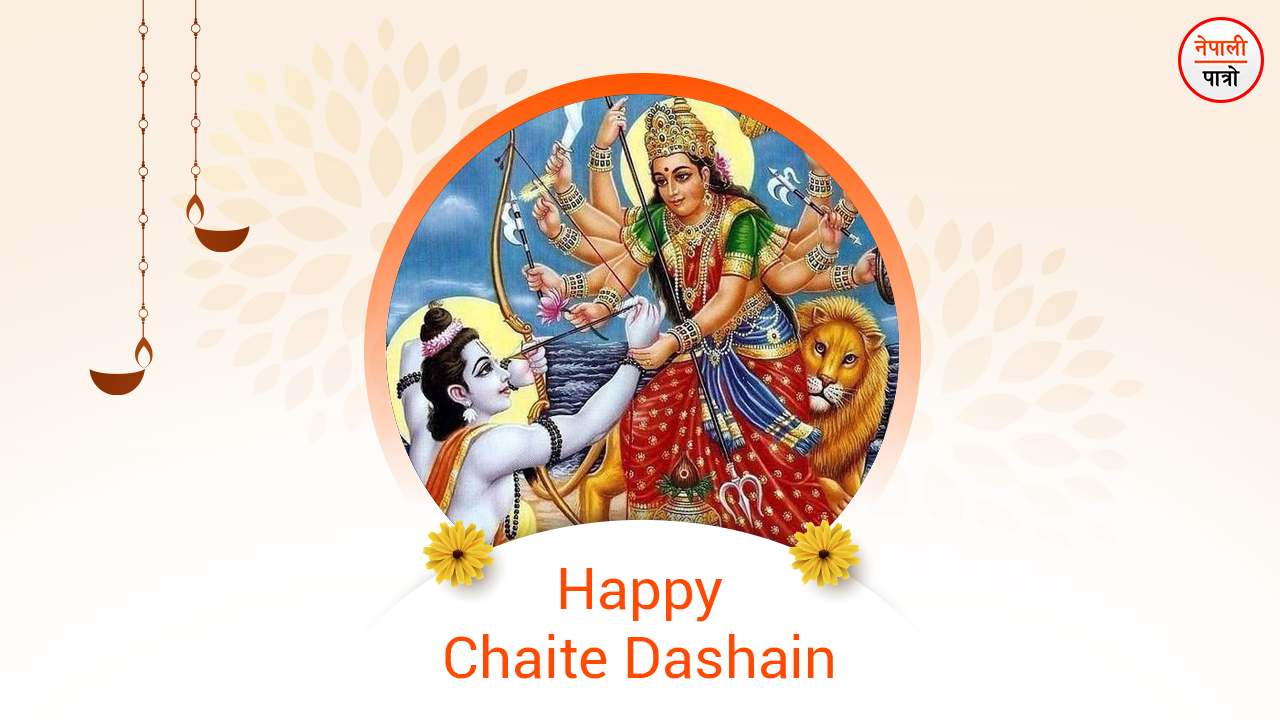 array(1) {
[0]=>
object(WP_Term)#2024 (16) {
["term_id"]=>
int(383)
["name"]=>
string(9) "Festivals"
["slug"]=>
string(12) "festivals-en"
["term_group"]=>
int(0)
["term_taxonomy_id"]=>
int(383)
["taxonomy"]=>
string(8) "category"
["description"]=>
string(440) "Festivals are celebrated on special days and dates by people of different castes and communities celebrating and worshiping different deities by having a feast etc. Melapat (social gathering), means trips, and festivals that bring people together. Jatra usually means the festival of god or goddess like Rath Yatra, Khat Yatra etc. Likewise, traditions refer to different Rituals, practises, and traditions that have long been practiced."
["parent"]=>
int(0)
["count"]=>
int(94)
["filter"]=>
string(3) "raw"
["cat_ID"]=>
int(383)
["category_count"]=>
int(94)
["category_description"]=>
string(440) "Festivals are celebrated on special days and dates by people of different castes and communities celebrating and worshiping different deities by having a feast etc. Melapat (social gathering), means trips, and festivals that bring people together. Jatra usually means the festival of god or goddess like Rath Yatra, Khat Yatra etc. Likewise, traditions refer to different Rituals, practises, and traditions that have long been practiced."
["cat_name"]=>
string(9) "Festivals"
["category_nicename"]=>
string(12) "festivals-en"
["category_parent"]=>
int(0)
}
}
festivals-en
Festivals
array(1) {
[0]=>
object(WP_Term)#2024 (16) {
["term_id"]=>
int(383)
["name"]=>
string(9) "Festivals"
["slug"]=>
string(12) "festivals-en"
["term_group"]=>
int(0)
["term_taxonomy_id"]=>
int(383)
["taxonomy"]=>
string(8) "category"
["description"]=>
string(440) "Festivals are celebrated on special days and dates by people of different castes and communities celebrating and worshiping different deities by having a feast etc. Melapat (social gathering), means trips, and festivals that bring people together. Jatra usually means the festival of god or goddess like Rath Yatra, Khat Yatra etc. Likewise, traditions refer to different Rituals, practises, and traditions that have long been practiced."
["parent"]=>
int(0)
["count"]=>
int(94)
["filter"]=>
string(3) "raw"
["cat_ID"]=>
int(383)
["category_count"]=>
int(94)
["category_description"]=>
string(440) "Festivals are celebrated on special days and dates by people of different castes and communities celebrating and worshiping different deities by having a feast etc. Melapat (social gathering), means trips, and festivals that bring people together. Jatra usually means the festival of god or goddess like Rath Yatra, Khat Yatra etc. Likewise, traditions refer to different Rituals, practises, and traditions that have long been practiced."
["cat_name"]=>
string(9) "Festivals"
["category_nicename"]=>
string(12) "festivals-en"
["category_parent"]=>
int(0)
}
}
festivals-en
Festivals
Chaite Dashain
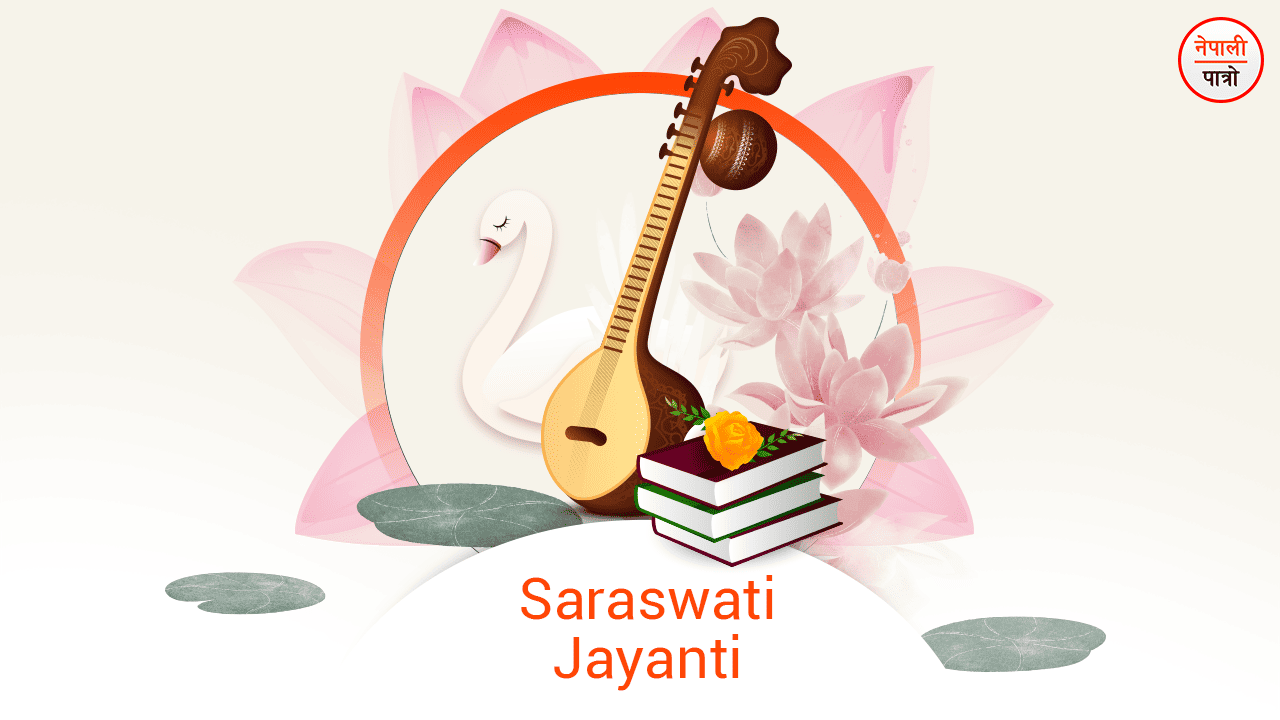 array(1) {
[0]=>
object(WP_Term)#2022 (16) {
["term_id"]=>
int(383)
["name"]=>
string(9) "Festivals"
["slug"]=>
string(12) "festivals-en"
["term_group"]=>
int(0)
["term_taxonomy_id"]=>
int(383)
["taxonomy"]=>
string(8) "category"
["description"]=>
string(440) "Festivals are celebrated on special days and dates by people of different castes and communities celebrating and worshiping different deities by having a feast etc. Melapat (social gathering), means trips, and festivals that bring people together. Jatra usually means the festival of god or goddess like Rath Yatra, Khat Yatra etc. Likewise, traditions refer to different Rituals, practises, and traditions that have long been practiced."
["parent"]=>
int(0)
["count"]=>
int(94)
["filter"]=>
string(3) "raw"
["cat_ID"]=>
int(383)
["category_count"]=>
int(94)
["category_description"]=>
string(440) "Festivals are celebrated on special days and dates by people of different castes and communities celebrating and worshiping different deities by having a feast etc. Melapat (social gathering), means trips, and festivals that bring people together. Jatra usually means the festival of god or goddess like Rath Yatra, Khat Yatra etc. Likewise, traditions refer to different Rituals, practises, and traditions that have long been practiced."
["cat_name"]=>
string(9) "Festivals"
["category_nicename"]=>
string(12) "festivals-en"
["category_parent"]=>
int(0)
}
}
festivals-en
Festivals
array(1) {
[0]=>
object(WP_Term)#2022 (16) {
["term_id"]=>
int(383)
["name"]=>
string(9) "Festivals"
["slug"]=>
string(12) "festivals-en"
["term_group"]=>
int(0)
["term_taxonomy_id"]=>
int(383)
["taxonomy"]=>
string(8) "category"
["description"]=>
string(440) "Festivals are celebrated on special days and dates by people of different castes and communities celebrating and worshiping different deities by having a feast etc. Melapat (social gathering), means trips, and festivals that bring people together. Jatra usually means the festival of god or goddess like Rath Yatra, Khat Yatra etc. Likewise, traditions refer to different Rituals, practises, and traditions that have long been practiced."
["parent"]=>
int(0)
["count"]=>
int(94)
["filter"]=>
string(3) "raw"
["cat_ID"]=>
int(383)
["category_count"]=>
int(94)
["category_description"]=>
string(440) "Festivals are celebrated on special days and dates by people of different castes and communities celebrating and worshiping different deities by having a feast etc. Melapat (social gathering), means trips, and festivals that bring people together. Jatra usually means the festival of god or goddess like Rath Yatra, Khat Yatra etc. Likewise, traditions refer to different Rituals, practises, and traditions that have long been practiced."
["cat_name"]=>
string(9) "Festivals"
["category_nicename"]=>
string(12) "festivals-en"
["category_parent"]=>
int(0)
}
}
festivals-en
Festivals
Shree Panchami-Saraswati Puja
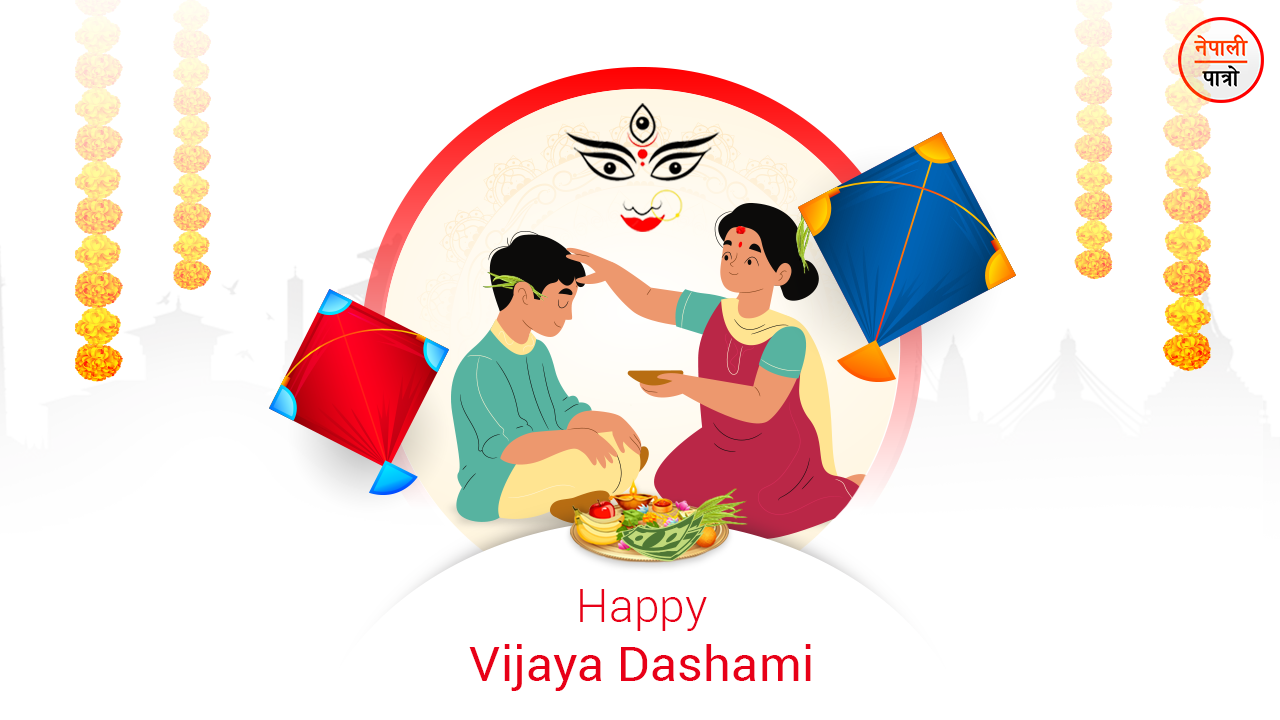 array(1) {
[0]=>
object(WP_Term)#1912 (16) {
["term_id"]=>
int(383)
["name"]=>
string(9) "Festivals"
["slug"]=>
string(12) "festivals-en"
["term_group"]=>
int(0)
["term_taxonomy_id"]=>
int(383)
["taxonomy"]=>
string(8) "category"
["description"]=>
string(440) "Festivals are celebrated on special days and dates by people of different castes and communities celebrating and worshiping different deities by having a feast etc. Melapat (social gathering), means trips, and festivals that bring people together. Jatra usually means the festival of god or goddess like Rath Yatra, Khat Yatra etc. Likewise, traditions refer to different Rituals, practises, and traditions that have long been practiced."
["parent"]=>
int(0)
["count"]=>
int(94)
["filter"]=>
string(3) "raw"
["cat_ID"]=>
int(383)
["category_count"]=>
int(94)
["category_description"]=>
string(440) "Festivals are celebrated on special days and dates by people of different castes and communities celebrating and worshiping different deities by having a feast etc. Melapat (social gathering), means trips, and festivals that bring people together. Jatra usually means the festival of god or goddess like Rath Yatra, Khat Yatra etc. Likewise, traditions refer to different Rituals, practises, and traditions that have long been practiced."
["cat_name"]=>
string(9) "Festivals"
["category_nicename"]=>
string(12) "festivals-en"
["category_parent"]=>
int(0)
}
}
festivals-en
Festivals
array(1) {
[0]=>
object(WP_Term)#1912 (16) {
["term_id"]=>
int(383)
["name"]=>
string(9) "Festivals"
["slug"]=>
string(12) "festivals-en"
["term_group"]=>
int(0)
["term_taxonomy_id"]=>
int(383)
["taxonomy"]=>
string(8) "category"
["description"]=>
string(440) "Festivals are celebrated on special days and dates by people of different castes and communities celebrating and worshiping different deities by having a feast etc. Melapat (social gathering), means trips, and festivals that bring people together. Jatra usually means the festival of god or goddess like Rath Yatra, Khat Yatra etc. Likewise, traditions refer to different Rituals, practises, and traditions that have long been practiced."
["parent"]=>
int(0)
["count"]=>
int(94)
["filter"]=>
string(3) "raw"
["cat_ID"]=>
int(383)
["category_count"]=>
int(94)
["category_description"]=>
string(440) "Festivals are celebrated on special days and dates by people of different castes and communities celebrating and worshiping different deities by having a feast etc. Melapat (social gathering), means trips, and festivals that bring people together. Jatra usually means the festival of god or goddess like Rath Yatra, Khat Yatra etc. Likewise, traditions refer to different Rituals, practises, and traditions that have long been practiced."
["cat_name"]=>
string(9) "Festivals"
["category_nicename"]=>
string(12) "festivals-en"
["category_parent"]=>
int(0)
}
}
festivals-en
Festivals
National Festival Vijaya Dashami (Bada Dashain)
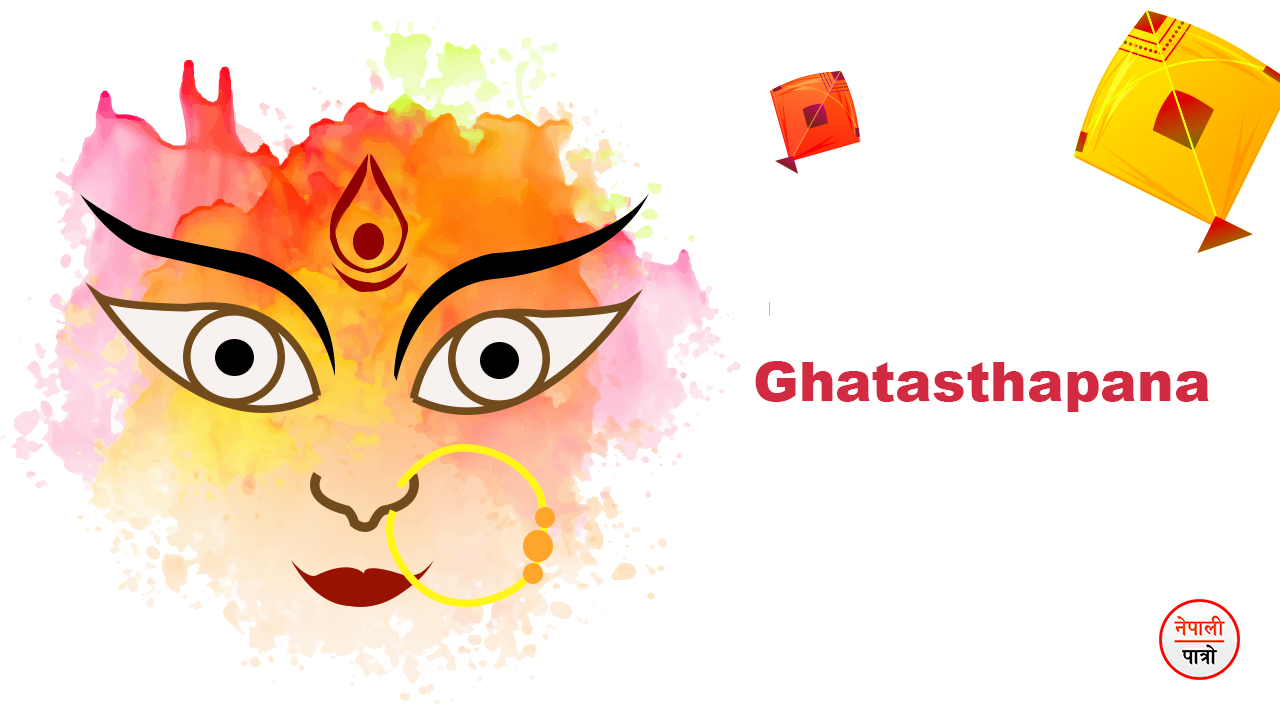 array(1) {
[0]=>
object(WP_Term)#2299 (16) {
["term_id"]=>
int(383)
["name"]=>
string(9) "Festivals"
["slug"]=>
string(12) "festivals-en"
["term_group"]=>
int(0)
["term_taxonomy_id"]=>
int(383)
["taxonomy"]=>
string(8) "category"
["description"]=>
string(440) "Festivals are celebrated on special days and dates by people of different castes and communities celebrating and worshiping different deities by having a feast etc. Melapat (social gathering), means trips, and festivals that bring people together. Jatra usually means the festival of god or goddess like Rath Yatra, Khat Yatra etc. Likewise, traditions refer to different Rituals, practises, and traditions that have long been practiced."
["parent"]=>
int(0)
["count"]=>
int(94)
["filter"]=>
string(3) "raw"
["cat_ID"]=>
int(383)
["category_count"]=>
int(94)
["category_description"]=>
string(440) "Festivals are celebrated on special days and dates by people of different castes and communities celebrating and worshiping different deities by having a feast etc. Melapat (social gathering), means trips, and festivals that bring people together. Jatra usually means the festival of god or goddess like Rath Yatra, Khat Yatra etc. Likewise, traditions refer to different Rituals, practises, and traditions that have long been practiced."
["cat_name"]=>
string(9) "Festivals"
["category_nicename"]=>
string(12) "festivals-en"
["category_parent"]=>
int(0)
}
}
festivals-en
Festivals
array(1) {
[0]=>
object(WP_Term)#2299 (16) {
["term_id"]=>
int(383)
["name"]=>
string(9) "Festivals"
["slug"]=>
string(12) "festivals-en"
["term_group"]=>
int(0)
["term_taxonomy_id"]=>
int(383)
["taxonomy"]=>
string(8) "category"
["description"]=>
string(440) "Festivals are celebrated on special days and dates by people of different castes and communities celebrating and worshiping different deities by having a feast etc. Melapat (social gathering), means trips, and festivals that bring people together. Jatra usually means the festival of god or goddess like Rath Yatra, Khat Yatra etc. Likewise, traditions refer to different Rituals, practises, and traditions that have long been practiced."
["parent"]=>
int(0)
["count"]=>
int(94)
["filter"]=>
string(3) "raw"
["cat_ID"]=>
int(383)
["category_count"]=>
int(94)
["category_description"]=>
string(440) "Festivals are celebrated on special days and dates by people of different castes and communities celebrating and worshiping different deities by having a feast etc. Melapat (social gathering), means trips, and festivals that bring people together. Jatra usually means the festival of god or goddess like Rath Yatra, Khat Yatra etc. Likewise, traditions refer to different Rituals, practises, and traditions that have long been practiced."
["cat_name"]=>
string(9) "Festivals"
["category_nicename"]=>
string(12) "festivals-en"
["category_parent"]=>
int(0)
}
}
festivals-en
Festivals
Major Rituals of Bada Dashain
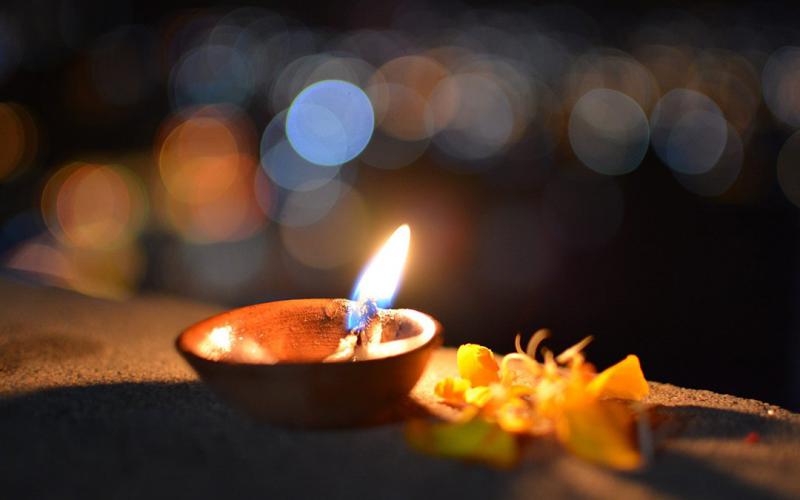 array(1) {
[0]=>
object(WP_Term)#2294 (16) {
["term_id"]=>
int(383)
["name"]=>
string(9) "Festivals"
["slug"]=>
string(12) "festivals-en"
["term_group"]=>
int(0)
["term_taxonomy_id"]=>
int(383)
["taxonomy"]=>
string(8) "category"
["description"]=>
string(440) "Festivals are celebrated on special days and dates by people of different castes and communities celebrating and worshiping different deities by having a feast etc. Melapat (social gathering), means trips, and festivals that bring people together. Jatra usually means the festival of god or goddess like Rath Yatra, Khat Yatra etc. Likewise, traditions refer to different Rituals, practises, and traditions that have long been practiced."
["parent"]=>
int(0)
["count"]=>
int(94)
["filter"]=>
string(3) "raw"
["cat_ID"]=>
int(383)
["category_count"]=>
int(94)
["category_description"]=>
string(440) "Festivals are celebrated on special days and dates by people of different castes and communities celebrating and worshiping different deities by having a feast etc. Melapat (social gathering), means trips, and festivals that bring people together. Jatra usually means the festival of god or goddess like Rath Yatra, Khat Yatra etc. Likewise, traditions refer to different Rituals, practises, and traditions that have long been practiced."
["cat_name"]=>
string(9) "Festivals"
["category_nicename"]=>
string(12) "festivals-en"
["category_parent"]=>
int(0)
}
}
festivals-en
Festivals
array(1) {
[0]=>
object(WP_Term)#2294 (16) {
["term_id"]=>
int(383)
["name"]=>
string(9) "Festivals"
["slug"]=>
string(12) "festivals-en"
["term_group"]=>
int(0)
["term_taxonomy_id"]=>
int(383)
["taxonomy"]=>
string(8) "category"
["description"]=>
string(440) "Festivals are celebrated on special days and dates by people of different castes and communities celebrating and worshiping different deities by having a feast etc. Melapat (social gathering), means trips, and festivals that bring people together. Jatra usually means the festival of god or goddess like Rath Yatra, Khat Yatra etc. Likewise, traditions refer to different Rituals, practises, and traditions that have long been practiced."
["parent"]=>
int(0)
["count"]=>
int(94)
["filter"]=>
string(3) "raw"
["cat_ID"]=>
int(383)
["category_count"]=>
int(94)
["category_description"]=>
string(440) "Festivals are celebrated on special days and dates by people of different castes and communities celebrating and worshiping different deities by having a feast etc. Melapat (social gathering), means trips, and festivals that bring people together. Jatra usually means the festival of god or goddess like Rath Yatra, Khat Yatra etc. Likewise, traditions refer to different Rituals, practises, and traditions that have long been practiced."
["cat_name"]=>
string(9) "Festivals"
["category_nicename"]=>
string(12) "festivals-en"
["category_parent"]=>
int(0)
}
}
festivals-en
Festivals
October 14, 2023 10 months
puja
October 15, 2023 10 months
thankyou and happy dashain tihar to every people in this world god bless u all
November 7, 2023 9 months
happy durga pooja